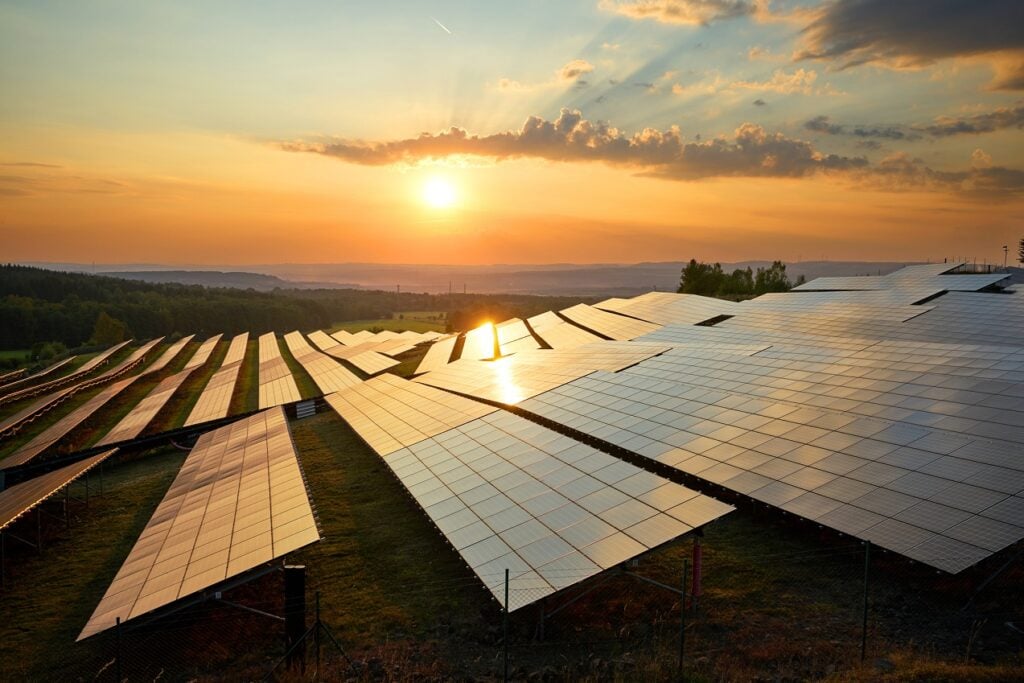Today’s publication of the Committee on Climate Change’s landmark Net Zero report, which recommends the UK government establish a target date of 2050 for the UK’s economy to become greenhouse gas-free, has been overwhelmingly approved by the country’s clean energy and environmental sectors.
Here, some of the industry’s leading figures have their say on the pivotal report and its recommendations.
Lawrence Slade, chief executive, Energy UK:
“We firmly support the recommendations made by the Committee on Climate Change today, for the UK to reach a net-zero economy by 2050. Our sector has already significantly reduced its emissions (56%) since the Climate Change Act passed in 2008 and we believe that with sufficient funding and policy frameworks supporting low carbon technologies, the power sector could reach net-zero emissions before that date.
“Last week we published ‘the Future of Energy‘ report looking across all aspects of the energy sector, and looking at how to deliver a low carbon future energy sector that customers see as fair and which delivers excellent service, choice and value for money to all homes and businesses. Our report clearly sets out steps that can be taken to decarbonise the energy sector further and faster, including the critical role that energy efficiency will play.”
Lord Adair Turner, chairman, Energy Transitions Commission:
“Two things have changed since we passed the Climate Change Act in 2008. One is that it is absolutely clear that the climate is changing and that it is man-made; there is now no legitimate debate about that. The second thing is that the costs of decarbonising have come down, and we have seen falls in the costs of wind, solar and batteries much bigger and faster than anyone expected – 65% for wind, 80% for solar and batteries,” he said.
“Just last year the Energy Transitions Commission, which I chair, showed that we can get to net zero in what have been regarded as ‘harder to decarbonise’ sectors such as heavy industry and transport within a few decades, and that the cost would be negligible. And so for the UK, we should set a target of net zero by 2050 – and if society is willing to accept more than a trivial cost, we could bring that date forward.
“But it is equally important to look at what zero means – and, zero should mean zero. We should have a target in 2050 that is zero within the UK, not zero by buying carbon offsets from other countries. That will really drive decarbonisation in all sectors of the economy.”
Rain Newton-Smith, chief economist, Confederation of British Industry:
“The Committee on Climate Change’s report and recommendations mark a new dawn for climate change action in the UK.
“The UK, and its devolved administrations, already have ambitious targets to reduce carbon emissions across a range of sectors. But the evidence that the UK must go a major step further and become carbon neutral by 2050 is substantial.
“We have already made a good start, especially in the energy sector. The UK has the world’s largest offshore wind farm capacity, we are generating more than half of our electricity from low-carbon sources, and we are leading research into technologies that capture carbon and re-use it. But if we are to reach the new target, we need a step change in government policy, business action and the way each of us lives our lives.
“Recent protests have shown the strength of public passion and sense of urgency that the UK should do all it can to mitigate the worst impacts of climate change, on society, the economy and the environment. What we need now is a supportive and timely response from the UK government to enact this ambitious target, so businesses and the public can get on with reaching it.”
Tim Rotheray, director, Association for Decentralised Energy:
“More decentralised energy in the UK will support the country’s move to net zero, and more quickly than people might think. Decentralised energy provides cost effective access to local energy, delivering huge CO2 benefits, and provides more control and better managed demand on the energy system for both consumers and business customers.
“We need an energy system that reduces energy waste, is more flexible, is customer focused, and can reuse waste heat. Decentralised energy does all those things and more. Decentralised energy can deliver at scale and can compete with the traditional outdated model of only using large scale energy generators. A more decentralised energy system will make the UK’s homes and businesses more carbon efficient, smarter by putting the customer in control, enabling households to save hundreds of pounds every year, whilst also making them more comfortable.”
Alex Kazaglis, principal, Vivid Economics:
“Across all sectors, the options for moving to net zero exist – it’s not about finding new technologies, it’s about finding a route to market for those that exist already. And it is perfectly possible for the UK to move to net zero by 2050 with very little disruption.
“In the electricity sector, a net zero target means we need complete decarbonisation as early as possible. For home heating, we’d be rolling out a million electric heat pumps each year in the 2020s. We’d have nine million electric vehicles on the road by 2025. So, we’d do all the same things we’re doing for the existing 80% target, but we’d do it faster and deeper.
“Could we do it earlier than 2050? Yes, but we’d need movement on some issues that are outside the UK government’s usual scope, such as dietary choice, and we’d need international co-operation in areas such as international shipping and aviation. With all that, we could go earlier.”
Richard Black, director, Energy and Climate Intelligence Unit:
“This is a seminally important report from the Committee, confirming that the UK can become the first major economy in the world to deliver on the Paris Agreement and can do so painlessly,” he said.
“Getting to net zero means making changes across the economy but importantly, nothing looks particularly disruptive. The Committee is talking about accelerating the ongoing move to clean energy and transport, continuing the modest changes we’re seeing in meat-eating and restoring forests and peatlands – and an overall economic impact that could end up being nil once hidden benefits such as cleaner air are taken into account.
“Equally important is that, while the Committee has been deliberating, the voices of businesses, MPs, farmers and the public have been supportive of a net zero transition. So now the ball is at the feet of ministers – and the Committee suggests there’s everything to gain from acting swiftly and decisively.”





